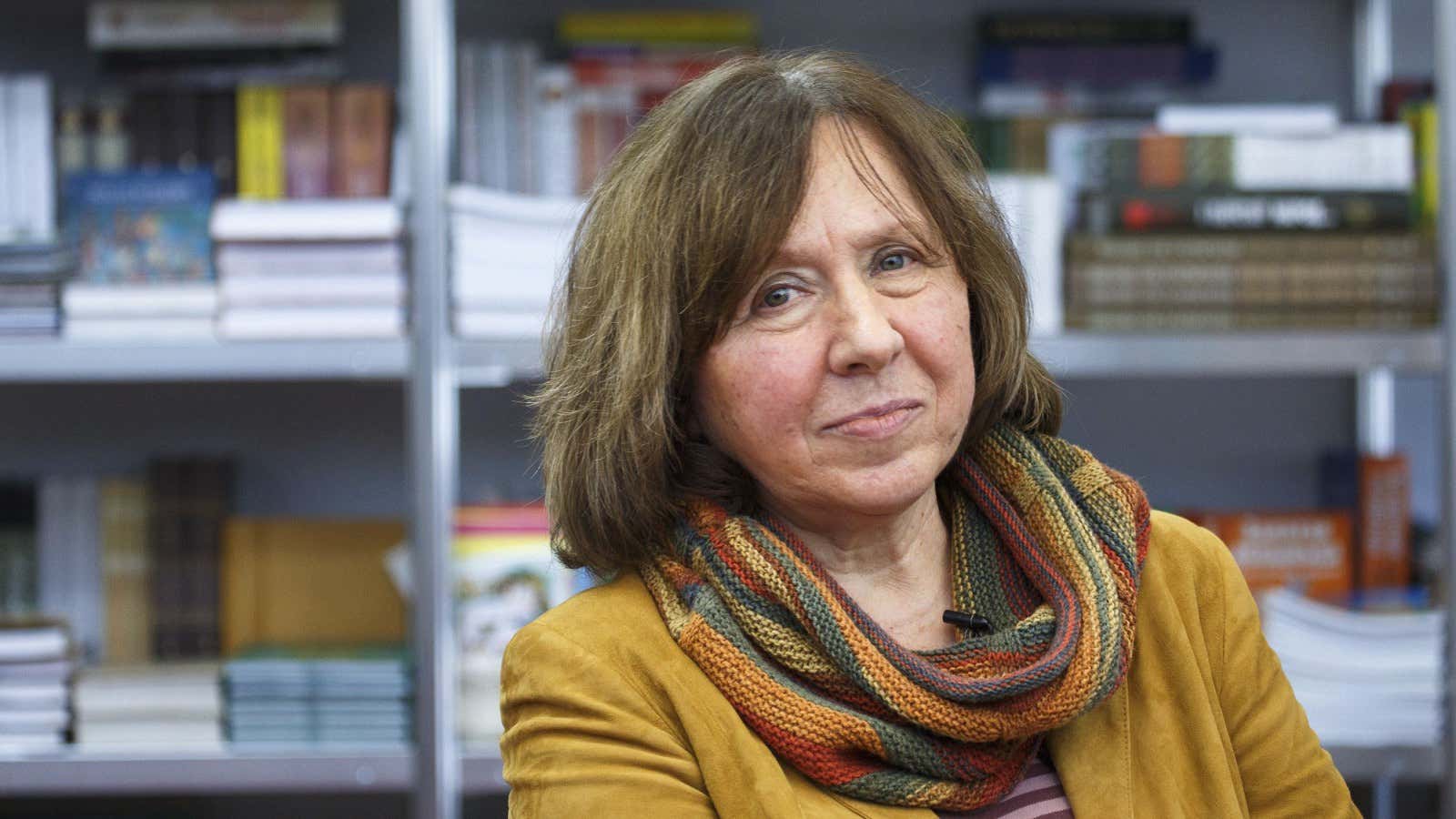Svetlana Alexievich, a Belarusian journalist and chronicler of life in and after the Soviet Union, won the Nobel Prize for literature today.
Her writing has involved the collection, “collage,” and communication of human stories from some of the most painful and dramatic events of her region’s history: the Second World War, the Chernobyl nuclear disaster, and Russia’s ill-fated war in Afghanistan between 1979 and 1989, to name a few. Her books, which have spanned three decades and appeared in Russian and in translation into English and other languages, include War’s Unwomanly Face, Zinky Boys, and Voices from Chernobyl.
The Nobel committee commended Alexievich for her “polyphonic writings, a monument to suffering and courage in our time.” She joins a small group of exclusively non-fiction authors to have won the prestigious award. She is only the 14th woman to get the distinction since the first prize was awarded in 1901.
The 67-year-old author was born in Ukraine—the birthplace of her mother, a teacher—a few years after the end of the Second World War. Her father, also a teacher, came from Belarus, and it was in that country’s capital, Minsk, that she earned her degree in journalism and was later based in her working life.
Alexievich had been one of the favourites to win the prize, awarded by the Swedish Academy. She had reportedly come close in previous years, with one critic arguing she deserved the prize as a proponent of an extraordinary medium that had fallen out of fashion in recent years.
The honor will likely open up Alexievich’s writing to a much wider audience than already enjoys it, leading potentially to a better understanding of the world, closed to outsiders, that she and her subjects inhabited throughout her early life. Another Russian writer, Boris Pasternak, most famous for the novel Doctor Zhivago, was awarded the Nobel back in 1958 and initially accepted, but was later compelled by the Soviet government to give it up.
It will also mean more eyes are turned on the insular Belarusian regime. The state is particularly restrictive, and specifically problematic for journalists and bloggers, according to Human Rights Watch. Freedom of expression is highly restricted, the charity says. Belarus also remains the only country in Europe to still use the death penalty.
